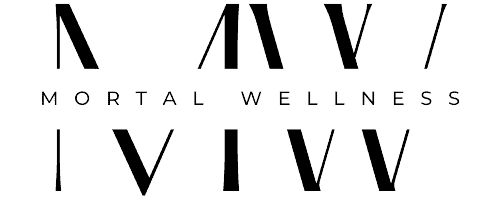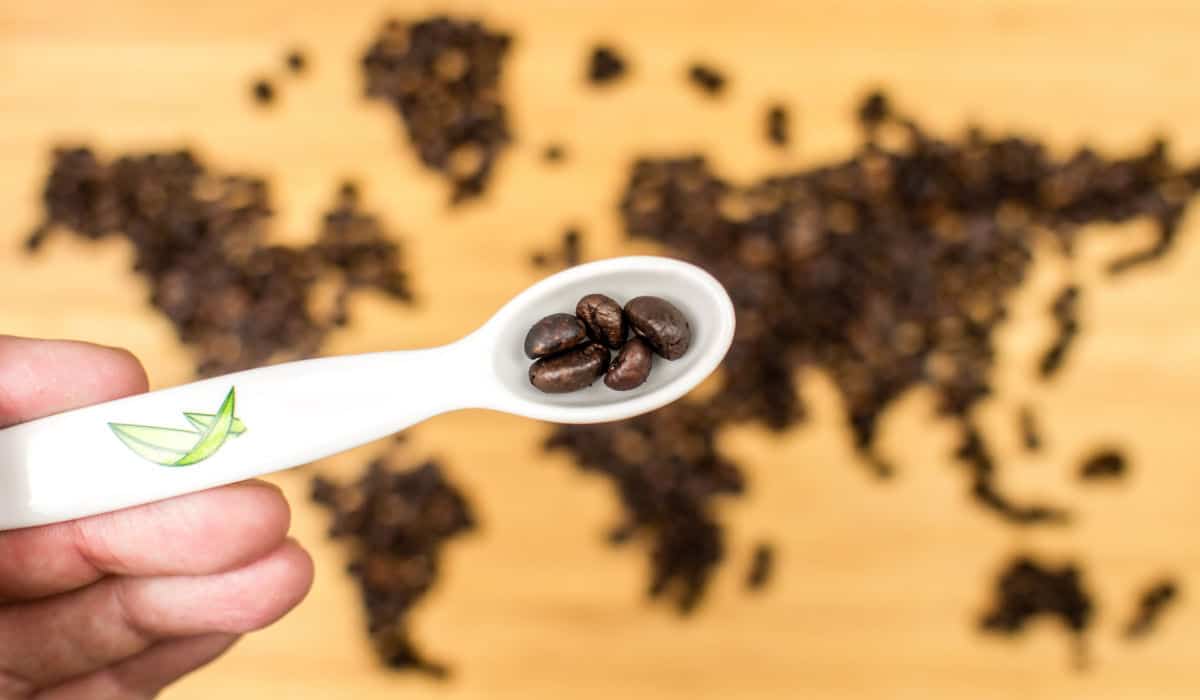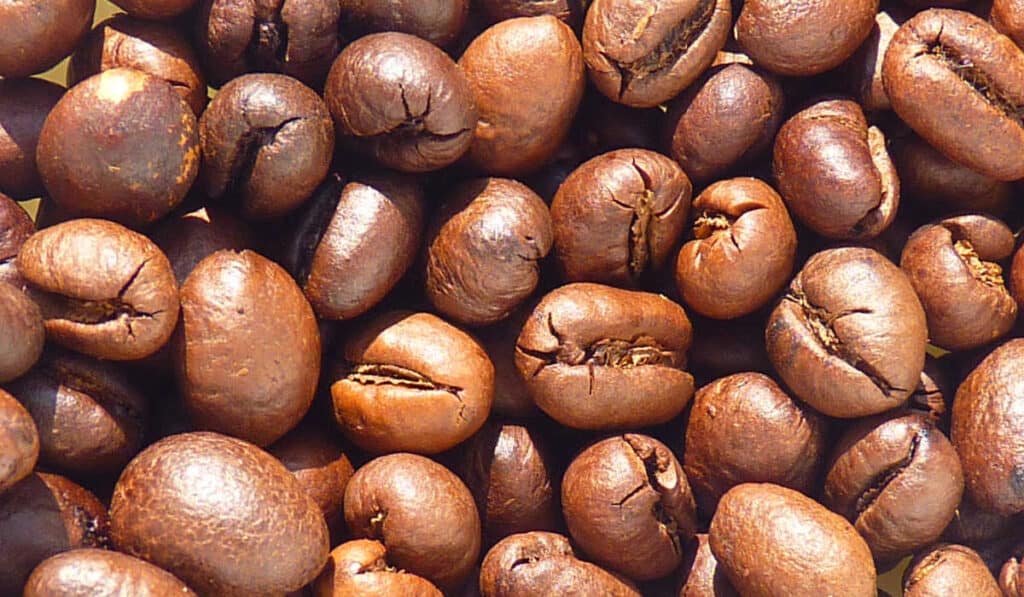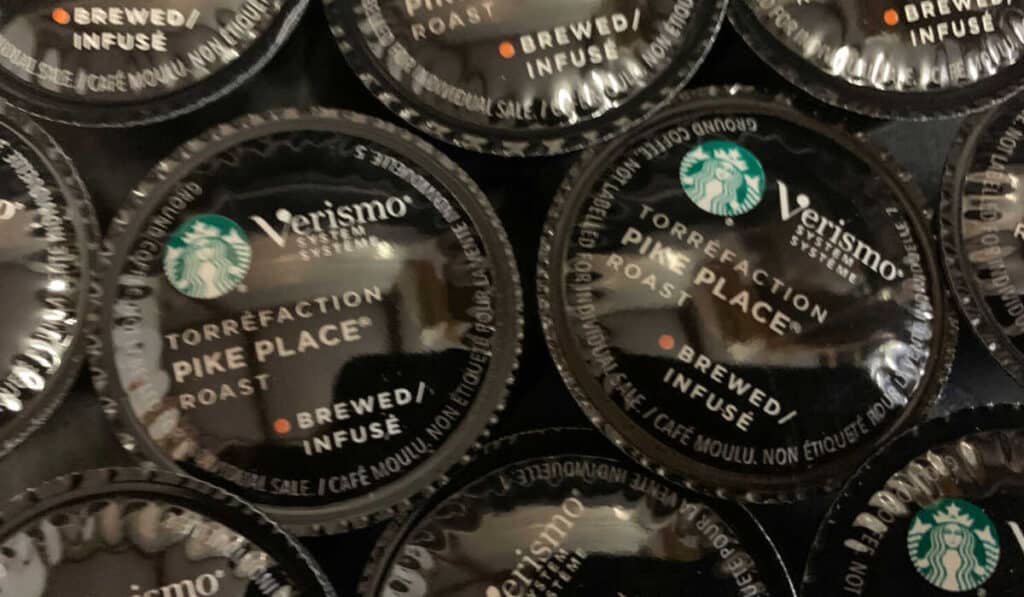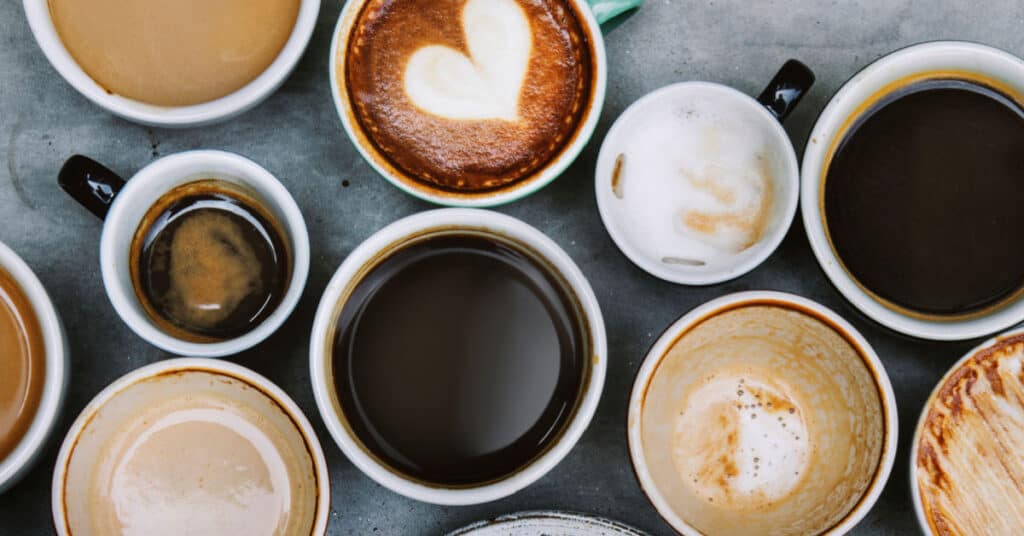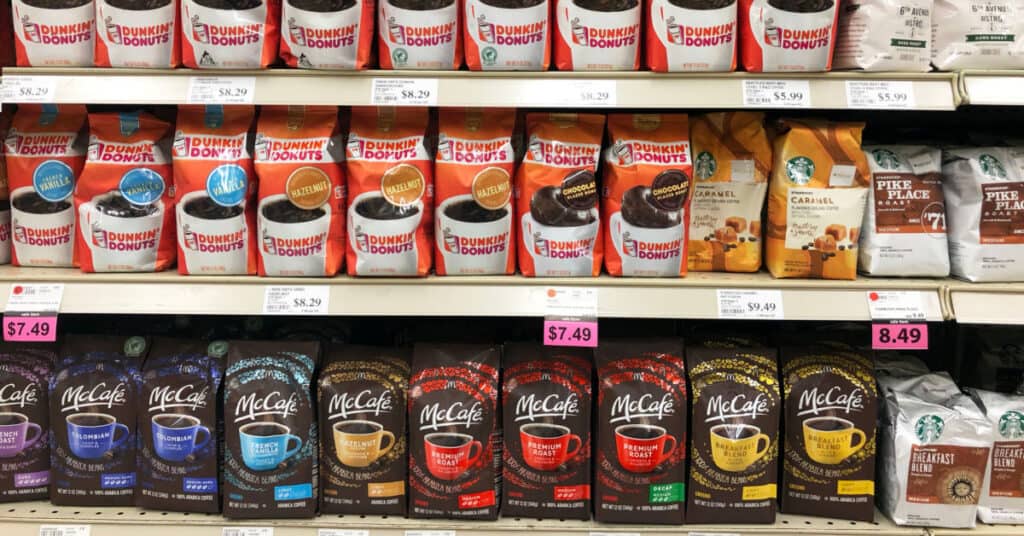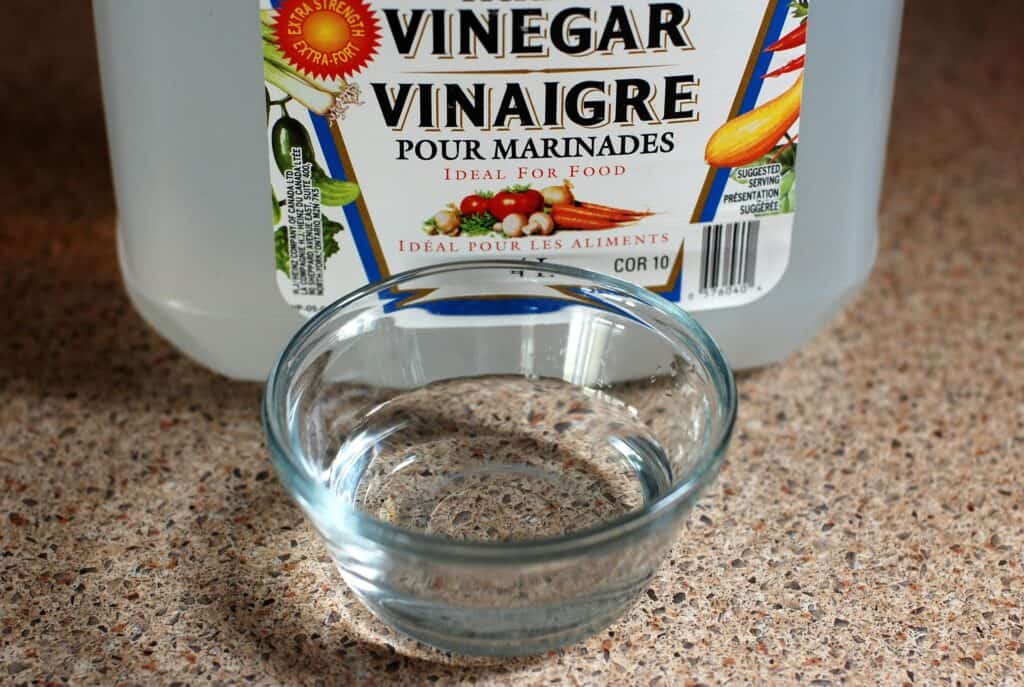As an Amazon Associate I earn from qualifying purchases.
Who doesn’t love a nice hot cup of coffee in the morning? It perks us up and gets us nice and awake for the rest of the day. There are also a lot of health benefits that come with drinking coffee. But some people are wondering: Can you eat coffee beans, too?
As it turns out, you can.
Coffee beans are edible and carry many of the same health beneifts that drinking coffee does. Both light and dark roasts are typically eaten dipped in chocolate to counteract the slightly bitter taste.
In fact, studies have shown that eating coffee beans has many surprising health benefits.
Can You Eat Coffee Beans?
People have eaten coffee beans for centuries, often mixed with other foods to boost energy. Sound familiar? It seems that before it was a delicious beverage, it was a popular snack.
But why coffee beans, exactly?
Coffee beans are naturally growing seeds of the coffee plant. A coffee plant grows tiny, cherry-like fruit, called coffee berries, whose pits are the coffee beans themselves. These beans and fruit grow in the thousands and growers pick, pit, roast, and sell them. We then grind them up and filter hot water through them to produce the coffee we love and enjoy.
The majority of people who drink coffee report that there are two reason they enjoy it, the caffeine and the taste. People consume coffee beans for the exact same reason.
And you don’t have to eat many beans to get your caffeine fix. Caffeine in coffee beans is far more concentrated that in brewed coffee. A single bean can have 5-10mg of coffee, meaning 10-20 beans is equal to a cup (or fewer if they dipped in chocolate).
While they are delicious excessive consumption of coffee beans might even lead to brain fog or a need to detox from caffeine.
Health Benefits Of Eating Coffee Beans
One of the most significant health benefits of eating coffee beans is that it delivers antioxidants. Antioxidants are good because they help to lower the risk of infection, raise your heart health, and even lower your risk of getting many forms of cancer.
In more minor ways, antioxidants can benefit your day-to-day life by helping with certain disorders in your body. Taking antioxidants can help with things such as eyesight, memory problems, mood disorders, and immune system issues.
Can you eat coffee beans to get a stronger kick from the caffeine? Yes, as a matter of fact, eating coffee beans is a great way to absorb caffeine faster. Let’s say that you’re in a rush in the morning and don’t have time to put a pot of coffee on. You can just chew on some raw coffee beans and get the effects of caffeine much, much faster.
When you chew up the coffee beans, the mucous membranes in your mouth absorb the majority of the juices that come out. It’s essentially the same effect as boiling water and making coffee the old fashioned way. Although, this is a much, much more concentrated dose of coffee.
The caffeine that you receive from that instant hit is very beneficial. For starters, caffeine is great for memory. If you consume some caffeine early in the morning, it can help you the rest of the day with your daily activities. A cup of coffee — or a couple of raw, solid coffee beans in the morning — is all you need to start the day.
The caffeine from eating coffee beans is also good for recovering from post-workout pains. So if you go to the gym, make sure to grab a handful of coffee beans on your way out. It’s also an excellent way to boost dopamine.
However — can you eat coffee beans if you’re on a diet? Those who are on a diet may rejoice, as they can add coffee beans to their list of healthy snacks. Coffee beans are very low in calories. So, if you’re looking for a morning pick-me-up for breakfast without drinking a sugary beverage, opt for some coffee beans.
Different Kinds Of Coffee Beans – Best Type To Eat

Can you eat coffee beans of different kinds and get the same effects? It depends. Some of the beans have different levels of caffeine in them. Coffee beans also greatly vary in flavor, from light roast to dark.
Arabica Coffee Beans
Arabica coffee beans typically have less caffeine in them than other types.
However, arabica is likely something you’ve had in your coffee since it makes up about 60 percent of all extracted coffee on the market. Although it’s the most common kind, it’s the most fragile one. These beans are popular mainly due to their taste.
They have to grow in very specific environments at high altitudes with just the right amount of moisture. You can buy a bag of these, but note that they are most at risk of getting diseases and going stale. They are very picky about their environments.
Robusta Coffee Beans
Robusta is a coffee bean with nearly twice the caffeine as the arabica. Unlike the arabica bean, the robusta is anything but fragile. It’s extremely tolerant of most environments (but prefers the heat) and is almost completely immune to most diseases.
While much more bitter than the other kinds of coffee beans, they are mainly chewed and consumed for the sake of energy.
Liberica/Excelsa Coffee Beans
Liberica is a more rare type of coffee bean, as it is rather hard to come by, but the flavor is unlike anything. Many people have described the aroma and taste to be rather woody or smoky. You’ll know a Liberia bean when you see one, since they are vastly larger, asymmetrical, and a much lighter color than the other beans.
While technically part of the Liberia family, the Excelsa couldn’t be any more different. The reason they belong in the same category is that they grow in almost identical situations and environments: high altitudes in Southeast Asia.
Green Coffee Beans
Finally, a new popular trend going around is eating green coffee beans. Green coffee beans are the state the coffee beans are in before they are roasted. It is considered by many to be their purest form. But, as I learned when I mixed coffee and kefir, just because something is trendy doesn’t mean that it’s good.
So, can you eat non-roasted coffee beans?
Health Benefits Of Eating Green (Unroasted) Coffee Beans
The answer is yes, and the reason why is that they are incredibly healthy for you. Just like regular coffee beans, green coffee beans are loaded with antioxidants. There have been several studies that show that unroasted green coffee beans contain pure chlorogenic acid, or CGA, which is caffeic acid with very strong antioxidant potential.
They are also great at normalizing blood sugar, which means a great deal for your body. First, it greatly reduces inflammation in your body, which also serves to help your blood sugar levels. Green coffee beans have been proven to help maintain blood glucose levels and lower your risk of getting type 2 diabetes.
Most popularly, green coffee beans are a diet supplement, as they help you lose weight. If you are already following a healthy diet and working out regularly, the green coffee beans help push your body even further into a healthier, more fit state.
The reason it helps you lose weight relates to its ability to normalize your blood sugar, as well as the caffeine that boosts your energy and speeds up your metabolism.
The point is, that munching on some green coffee beans is not a bad idea.
The Negative Side Effects of Eating Coffee Beans
Nothing is perfect, and that also applies to eating coffee beans. Just as drinking coffee has shown a lot of benefits, there are also some issues with regulation and the fact that it may not be a good idea for everyone. It’s important to understand that caffeine affects everyone differently, just like any substance.
Can you eat coffee beans as much as you want? No, definitely not.
It’s considered safe to drink about two hundred to four hundred milligrams of coffee per day — that’s around four or five cups. If you drink more than that, it may have negative side effects on your health, especially if you have a sensitivity to caffeine.
With that said, if you eat coffee beans, you’ll get more concentrated doses of caffeine. A typical cup of coffee uses a drip maker and a filter. That often limits the amount of caffeine you get, not to mention that it’s in liquid form. If you eat a coffee bean, you’re essentially getting every bit of caffeine that little bean has. So if you were to do the math, the safe amount of coffee beans to eat every day is about 33, assuming you have an average caffeine tolerance.
Cut Back On The Chocolate Covered Variety
If you eat the chocolate-covered coffee beans, you are not only consuming more caffeine, but you’re also eating more fats and sugars than you need to. We recommend either eating them plain or limiting the amount of chocolate-covered coffee beans you eat.
People who eat coffee beans have reported occasional bouts of diarrhea, as coffee beans have a laxative effect. While not everyone will experience this, it can happen — and while it may not be life-threatening (for most people), it is quite the nuisance. If you already suffer from irritable bowel syndrome (IBS), then it may not be a good idea to eat coffee beans.
So, Should You Eat Coffee Beans?
Can you eat coffee beans if you don’t like coffee? Sure, but note that they have similar effects. Can you eat coffee beans if you’re on a diet? Absolutely! Just limit the amount of chocolate-covered coffee beans. Can you eat coffee beans if you are sensitive to caffeine? It may not be such a good idea.
The negative side effects of eating coffee beans aren’t that dissimilar to those of drinking coffee, so if you’re looking for a new kind of healthy snack, you can absolutely eat coffee beans. There are different flavor varieties to choose from, and green coffee beans are great for diets. So, go ahead and give it a shot!
